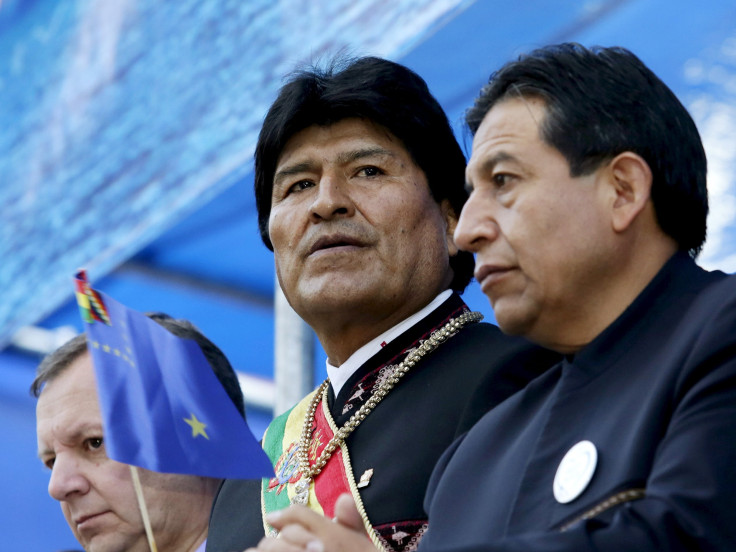
The historic presidency of Evo Morales may be ending on a sour note. Preliminary results indicate that the indigenous Bolivian leader has lost a referendum that would have allowed him to run for a fourth term. The leftist Andian leader has promised to respect the results of the referendum and, if officially barring him from another term, step down in 2019. At home, revolutionary Morales drastically reduced the rate of abject poverty. Abroad, he served as an ambassador for indigenous rights around the world.
Morales’ successful socialist experiments helped him weather criticisms that he was suppressing the press and favoriting his own Aymara indigenous group over others. He resisted international pressure to slow cooperate with coca eradication and various corporate lobbyists. But his undoing -- a virtual revolt among his indigenous base -- seems to stem from a single romantic affair. It is not the sex out of wedlock that seems to have scandalized the Bolivian public, so much as the role of power in Morales’ affair with Gabriela Zapata.
Zapata was half Morales’s age at the time the affair reportedly began in 2005. Morales was unmarried at the time, and still is. That in itself was no scandal. But Zapata later became a manager at a Chinese construction firm that has won major government contracts. And Morales has been caught lying about his relationship with the woman, denying that he knew her before later acknowledging the affair, and even the death of their child.
For other Bolivians, it was simply time for a change. Morales is serving his third term spending more than a decade as the country’s president.
© 2025 Latin Times. All rights reserved. Do not reproduce without permission.




